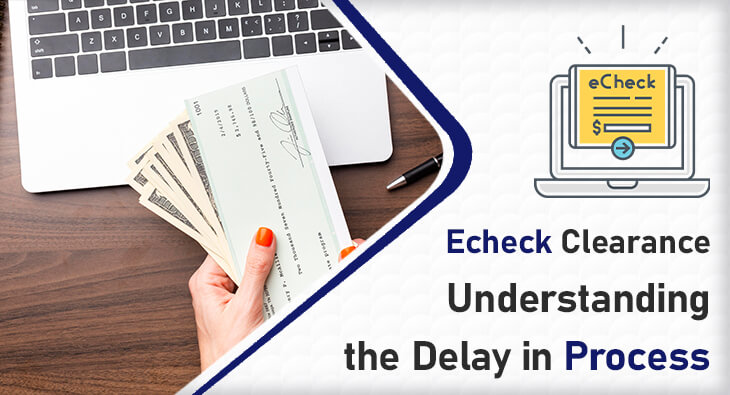Are you tired of waiting for your echeck to clear? Many people choose to use echecks as a convenient and secure way to make payments online. However, the clearance process for echecks can sometimes take longer than expected, causing frustration and confusion. In this blog post, we will dive into the details of how long an echeck takes to clear and what factors may affect the clearance process. By understanding the ins and outs of echeck clearance, you can better manage your expectations and avoid delays in the future. So let’s explore the world of echecks and gain a deeper understanding of their clearance process.
What is an Echeck and How Does it Work?
An echeck, short for electronic check, is a digital version of a traditional paper check. It allows individuals and businesses to make payments electronically, without the need for physical checks or credit cards. Echecks work by transferring funds directly from the payer’s bank account to the payee’s bank account, using the Automated Clearing House (ACH) network. The payer provides their bank account and routing numbers, and the payee electronically processes the payment. Echecks are a secure and convenient payment method, and they are widely accepted by online merchants and service providers. They offer a simple and efficient way to make payments without the hassle of paper checks or credit card processing.
Some Related Blogs
- Maximizing Card Issuing Benefits: Tips and Tricks
- Understanding Credit Card Processing Guidelines
- 5 Reasons Why ACH Debit is the Future of Payment Processing
- Easy Ways to Start Accepting Payments for Your Coworking Space
Factors Affecting the Speed of Echeck Clearance
The speed of echeck clearance can be influenced by several factors. Firstly, the time it takes for an echeck to clear can vary depending on the individual bank’s policies and processing times. Some banks may have quicker processing times than others, resulting in faster echeck clearances. Additionally, the amount of the echeck can also impact the clearance time. Larger echecks may require additional verification or review, which can delay the clearance process. Furthermore, any errors or discrepancies in the echeck information, such as incorrect account or routing numbers, can cause delays as well. It is important to ensure that all information is accurate to avoid any unnecessary hold-ups in the clearance process.
Typical Timeline for Echeck Clearance
Once you’ve initiated an echeck payment, you’re probably wondering how long it will take to clear. While there is no definitive answer, as clearance times can vary, there is a typical timeline that you can expect. On average, it takes around 3-5 business days for an echeck to clear.
![]()
Email us anytime!
Email customer service 24/7
![]()
Call us anytime!
Reach customer care 24/7 at +1 (727) 330-3944
However, this can be longer depending on certain factors like weekends or holidays, bank policies, and the amount of the echeck. Keep in mind that this is just a general guideline, and the actual clearance time may be shorter or longer. Patience is key when it comes to echeck clearances, but understanding the timeline can help manage your expectations.
Why Do Echeck Clearances Get Delayed?
Echeck clearances can sometimes experience delays due to various reasons. One common reason is errors or discrepancies in the echeck information provided. Incorrect account or routing numbers can cause the clearance process to be delayed as the payment needs to be reviewed and verified. Additionally, larger echecks may require further verification, leading to longer clearance times. Another factor that can contribute to delays is the individual bank’s policies and processing times. Each bank may have different procedures, resulting in variations in clearance speed. It’s essential to ensure all information is accurate and up-to-date to avoid unnecessary delays in the clearance process.
Tips to Ensure a Faster Echeck Clearance
To ensure a faster echeck clearance, there are a few tips you can follow. Firstly, double-check all the information you provide when initiating the echeck payment. Make sure your account and routing numbers are correct to avoid any delays due to verification processes. Secondly, consider scheduling your echeck payment strategically. If possible, avoid initiating echecks during weekends or holidays, as these may cause additional delays. Additionally, try to send smaller echecks when possible, as larger amounts may require more verification and review. Lastly, communicate with your bank to understand their specific policies and processing times for echecks. By being proactive and mindful of these tips, you can help expedite the echeck clearance process.


